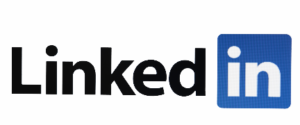
2019 was my year to get to know LinkedIn.
I mean REALLY get to know it (more on that journey later).
What I’ve discovered—and what gets me—are the stories and storytellers.
I am amazed at the consistent content and relevant messaging these people put out.
Posts rich in real-life experiences, expertise, and valuable information about everything from job search to recruitment to resume writing and LinkedIn in today’s workforce.
There are some amazing thought leaders that consistently offer great content, tips, hacks, examples, on these topics. I’ll list my favorites—most are career-related, others are just plain interesting. If you have time, check out their profiles and see what they have to say:
Resume Writers/Career Coaches
@adriennetom
@annetterichmond
@ashleyjwatkins
@jessicaholbrook
@laurasmithproulx
@masterresumewriter
@maureenmccann
@megguiseppi
@virginiafrancoresumewriter
@wespierce
@thewritingguru
LinkedIn
@andyfoote
@brendameller
@christinehueber
@edhan
@jeffyoungralemoi
@joeapfelbaum
@kevindturner
@selsliger
Career & Job Search
@alokotkova
@austinbelcak
@bironclark
@bobmcintosh
@hannahmorgan
@jtodonnell
@jonshields
@kerritwigg
@kylecromerelliot
@madelinemann
@mariezimenoff
@markanthonydyson
@sarahdjohnston
@susanjoyce
Recruitment & Talent
@chrislonas
@emilylawson
@laurenmcdonaldgogogo
@lauraakiley
@rebeccaoppenheim
@tejalwagadia
@tonyrestell
Speakers, Coaches, Trainers
@tsufit
@jayandrewssolution4u/
@valeriejgordon
@joeapfelbaum
I’m sure I am missing LOTS of people and I will remember them as soon as I hit “publish”, but I am so grateful to these ROCKSTARS who keep delivering great content to jobseekers EVERY. DAY.
Happy New Year! 2020 here we come!

One of the realities for women is that of being pregnant and working a full-time job. Actually, even if you were home all day, you’d be working around the house, so it isn’t a new or unusual condition, but for the first-time mother you do need to take some things into account:
- Pregnancy changes your physical needs. You really do need to get more rest and pay attention to nutrition! Now is not the time to pretend you are superwoman.
- Pregnancy changes the way your emotions and brain work. Give yourself space and permission to make some mistakes, then plan to correct the mistakes as they happen.
- Pregnancy changes your insurance needs. Take the time to find out exactly how any benefits you have on the job apply and what the exceptions are for coverage. Don’t assume anything and be good friends with Human Resources if your employer has that asset.
- Pregnancy changes your housing needs. You don’t need to have a fully-equipped nursery at first, but you will need some things like a car seat and a plan for the future. And lots of diapers. Oh, and did I mention diapers?
- Pregnancy changes your future plans. Find out what maternity leave will entail from that good friend in HR. Figure out child care options for your return to the job.
- Pregnancy changes your plans for today. You have a job to do and you know your stuff. Be flexible where you can and prepare ahead for days that will be low-energy. If you can work ahead or get organized, good. If you need a nap or have to put your swollen feet up, it will give you a break to get ready for the next thing on your agenda.
Your employer should not discriminate against you for being pregnant. Become familiar with your rights but reassure those relying on you that you have every intention of being responsible to fulfill your obligations on the job. You aren’t alone; network with other mothers and develop your support group (I went to MOPS (Mothers of Preschoolers). If your schedule can swing it, I highly recommend it! This will be a big change for you but such a blessing!

Gone are the days of searching for a job the old fashioned way… knocking on doors.
Today’s job seekers are leveraging the power of the internet to network with colleagues through online profiles, make connections with decision makers, and apply for jobs through a company’s website online.
Social media is changing the landscape of how people relate to each other. Before the advent of keeping track of people online, it was harder to maintain an extended network. Now, it’s possible to catalog all the people you’ve known through previous jobs – and to keep in touch with them as well. This has had numerous impacts on the workplace, and how people get jobs.
In the early days of the internet, people would search job boards. Monster.com and Yahoo!Jobs were touted as the hot new thing, and these job boards were huge for the recruitment industry. Here was a (relatively) cheap way to reach thousands of people across the whole world with news about your job opening. While still extensively used, job boards seem to have fallen to the baseline. They require little to no personal interaction to apply for a job. On the recruiter’s side, they often have to deal with spam bots which send out limitless replies to job advertisements. Not as bad as spam bots, but still very annoying, are people who apply on every job on the board, regardless of how qualified they actually are for the job. The entry-level recruiter who spends their day sifting through hundreds of applicants for an administrative assistant’s job is practically tearing his/her hair out.
Now, a lot of recruiters are on Facebook, and there are some people who exclusively advertise job openings they’re working to their Facebook friends. This is helpful, because friends can direct their friends to connect with recruiters – and people that are recommended for a job are much more likely to get it than a random faceless applicant.
Twitter is another way that job news is getting out. Subscribing to a Twitter feed is an easy way to get information on a job – even if it’s only 140 characters. A job title and a few keywords are often enough information for a job seeker to determine if they’re interested in an opening.
LinkedIn, which is a site dedicated to professionals looking to maintain their personal business network, is also another place that has exploded with opportunities. At first, LinkedIn was just a way to keep track of people – now, you can post pictures, presentations, your blog posts, Twitter feeds, daily ‘status’ and so much more. LinkedIn is ripe with job opportunities.
At first, people created groups for job-seekers. Then, recruiters made groups through which they would post openings. Groups such as, “Jobs for Software Developers” attracted only the niche market they were going after – people who were looking for software development jobs, and friends of people who might be interested. LinkedIn capitalized on this phenomenon by creating a job board integrated with their website. Now, people can pay for a job ad, and have their links recommend their friends for a job. I am going to stop right here with LinkedIn. You all know how I could talk about its benefits 24 hours a day.
What has made social media a great outlet for finding a job is the fact that the internet has changed from a broad scope to a niche marketing tool. Take advantage of it.
Editors Note: Kristi Musgrave is a colleague and friend of mine, as well as today’s Guest Blogger. She has oodles of management experience and tells us what it’s like to be on the other side of the desk. Here is some good advice on what NOT to say during an interview.
***************************************************

“You won’t believe this,” he said. “What?” I asked. “We just had a candidate offer to show the hiring manager his gun shot wound.”
Why do people do this? Is it nerves? Do they just not know any better? Why do people share too much or inappropriate information during job interviews?
For the past 10 years I’ve had the opportunity to interview a variety of people and I am still amazed at what they will discuss during an interview. I’ve heard about fights with family members, pets that have died, and mean bosses. I’ve even been asked if I have a prosthetic eye. I don’t by the way.
The purpose of an interview is to assess a candidate’s suitability for a job. A significant part of that assessment will be based on what you say during the interview. Avoid discussing personal information unrelated the position. Discuss your experience, the skills you have that make you well suited for the position, and why you are the best candidate.
Rachel Zupek, a writer for careerbuilder.com offers this advice (you can read the full article here):
Go ahead with the following personal info:
- Goals – It’s OK to talk about what you want in your next assignment and what inspired you to apply for the position.
- Growth – You can and should talk about the things you’ve done up to this point to invest in yourself and your professional development.
- Highlights – Relate the highlights of your greatest professional achievements to date without exaggerating or pontificating.
- Motivations – Talk about what motivates you, excites you, what brought you to that particular industry and what attracted you to that specific employment opportunity.
Do not delve into these personal topics during your interview.
- Lifestyle choices, politics, religion or family plans. Controversial topics may make for stimulating conversation but an attractive employee does not stimulate water-cooler frenzy among the masses.
- Endless name dropping. You can establish that you know some of the same people as the interviewer to build rapport, but don’t think you’re upping the ante by upping the volume.
- Health history. Stay away from your health history mental and otherwise. You’re supposed to be positioning yourself as dependable and reliable; not as a candidate likely to spike the bell curve on benefit-related expenses.
- House problems, nanny drama or rehab trips. Employers don’t want to know much about your life except as it relates to what you’ve done professionally and what you’re likely able to do for them.
- Bosses from hell. Simply put, no prospective boss wants to hear a litany of “boss from hell” stories.
So, unless you’re interviewing for a position as nude model for a sculpting class, discussing your gunshot wound is way too much information for a job interview. Keep your answers professional and focused on your skills and experience as it relates to the position. Good luck at your interview.
++++
Kristi Musgrave is a Senior Validation Engineer with the Validation and Compliance Institute, LLC. She provides cGMP training, validation, and auditing services for the FDA regulated industries. You can reach Kristi at musgrak@gmail.com




